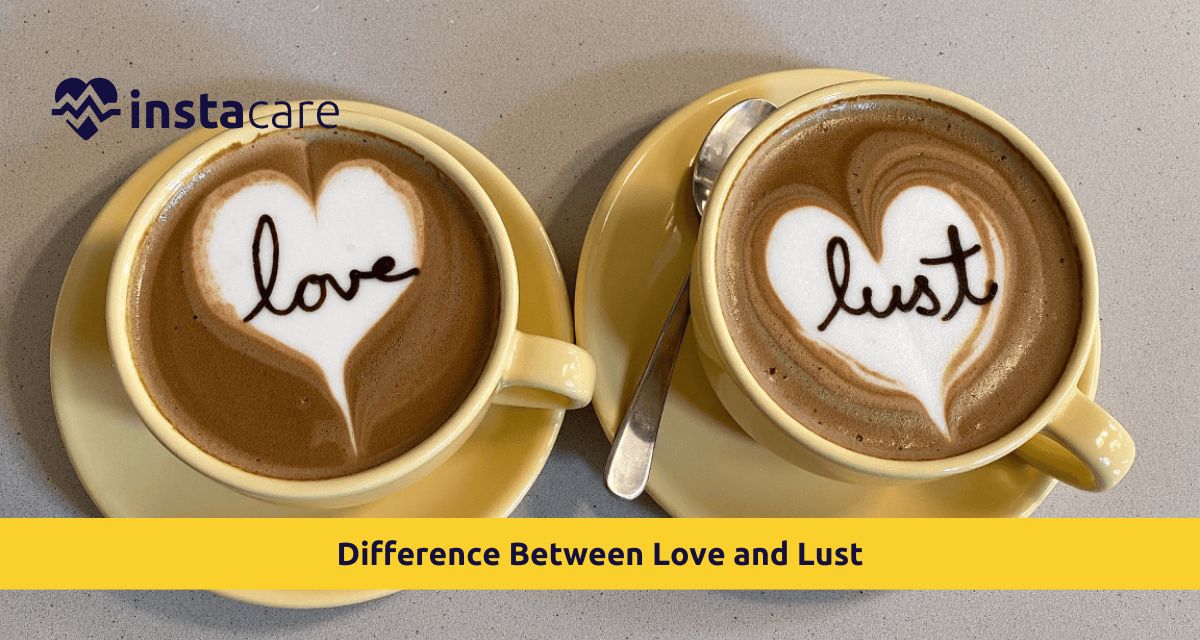Stability and common aims in life are formed through love, as opposed to lust, in psychology. While lust encourages instant gratification and passion. They can both be in a healthy relationship, but without knowing the difference, unrealistic expectations abound, imbalance of feelings, or lost opportunities for intimate connection. These dynamics create relationships based on passion and genuine emotional depth.
What is Love?
Love is the feeling of belonging that is created by respect, care, and trust. Love is the true glow in relationships that grows stronger with time, even when the initial passion fades. It's making the other person's happiness priority over your own, showing up when they show up, and being brave enough to be vulnerable.
Real expressions of love are, unconditional support, open conversation, long-term relationship, and wishing your sweetheart to succeed. Love vs lust in marriage or long-term relationship undergoes the stage from infatuation to emotional attachment. The process allows the couples to be strong enough to weather ups and downs without snapping the string that binds them together.
What is Lust?
Lust is intense physical desire usually founded on chemistry and attraction. Lust in relationships meaning is quite more so the thrill of physical closeness as compared to emotional significance. Lust can be exciting and overwhelming, but lust is short-term-focused.
Lust is not sinful in itself, it is a wholesome energy to fuel the desire burning inside committed relationships. Lust meaning in relationships can render a relationship superficial or unfulfilling, however, if it occurs due to a lack of emotional intimacy and only lust. The majority of love vs lust examples indicate lust will be lifeless if there is no emotional engagement.
Key Differences Between Love and Lust
Some of the major differences and True love signs in the Love vs lust psychology system are as follows:
Emotional Depth vs Physical Attraction
Love is based on emotional connection, experience, and intuition. It transcends physicality or chemistry. Lust is the yearning for physical attraction and craving. Lust can ignite a relationship, but love sustains it with deeper connections that can survive time and test.
Long-Term vs Short-Term
Love is forward-looking, i.e., being together and enduring the ups and downs together. Long-term love vs short-term lust is different. Lust is everything about fulfilling basic needs in the present without regard for tomorrow. Whereas lust can so easily vanish, love is grounded on shared experience, commitment, and shared vision for tomorrow.
Security vs Excitement
Love builds safety, trust, and emotional security, feeling at ease with having your partner around you. Lust is fueled by excitement, novelty, and the thrill of desire. Though thrilling, lust without the support of an emotion will become shaky and unreliable in the long run.
Selflessness vs Self-Focus
Love is empathy, compromising, and concern for your partner's well-being even when it's not convenient. Lust is egotistic with self-gratification being the primary concern. They can both be present in a healthy relationship, but love is passion with a true concern for your partner's well-being and happiness.
Growth vs Stagnation
Love develops when the couple grow up and understands each other. Love initiates personal and interpersonal development. Lust is stagnant if it is only at a level of desire. Lust can perish when the desire vanishes without emotional nurturing. Knowing the differences How to tell love from lust will prevent heartbreak due to love vs infatuation.
How to Know the Feeling?
To know Is it love or lust quiz, ask yourself:
- Do I love their well-being no matter our sex life?
- Do I wish to learn their values, fear, and dreams?
- Can I visualize both of us in tough situations?
There are daily indications of love and lust. Love is wanting to bond on more than one level, intellectual, emotional, and physical. Lust is sexual attraction, more visual, and quick satisfaction. Telling them to a close friend or putting them down can help you realize what you feel.
Can Love and Lust Coexist
Yes. Healthy Love and lust in relationships actually coexist quite well. Lust provides the fireworks and re-ignites the fires, and love holds things together during the bad times. Marriage love or lust, couples do actually work to keep the chemistry alive and build emotional intimacy. Without lust, the relationship would be a friendship; without love, it would be superficial once the passion wears off.
Why It Matters to Know the Difference
Learn to Difference between love and attraction so that you will not marry an incompatible person. If you combine lust with love, you may be speeding too fast without actually knowing it later that there is no emotional attachment. Suppressing lust to an extreme can lead to comfortable but not romantic marriages. Knowing about love or lust allows you to have realistic expectations, avoid heartbreak, and appreciate equally respected and needed partners.
Conclusion
Love and lust are strong feelings, but they serve very distinct roles in a relationship. Love stems from extreme emotional proximity, security, trust, and mutual respect for one another, forming long-term joy and protection. Emotional connection vs physical attraction. Love develops over time, forming commitment and common lifetime goals.
Lust is mainly physical attraction and desire, forming passion, excitement, and chemistry in the instant. Lust may initiate a relationship, yet love sustains it for years. A finally fulfilling and enduring relationship will fluctuate between the intimacy and trust of love and the lust and desire of lust. Dating, being in a relationship, or in matrimony, love vs lust psychology enables you to make effortless decisions, steer clear of confusion, and create healthier and more intimate relationships that will endure.
Please book an appointment with the
best Psychologist in Lahore, Karachi, Islamabad, and all major cities of Pakistan through
InstaCare, or call our helpline at 03171777509 to find the verified doctor for your disease.

